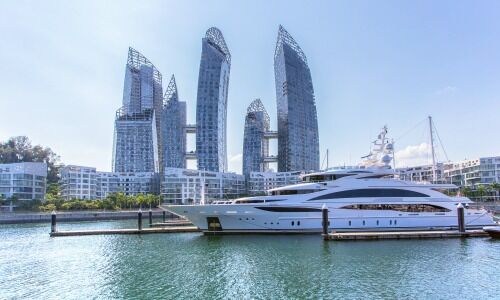Singapore No Longer World's Most Expensive City
The republic is now the fourth most expensive city to live in globally, after Zurich, Paris and Hong Kong.
Covid-19 has shuffled the rankings of the world's most expensive cities, with Zurich and Paris overtaking Singapore and Osaka in the latest «Worldwide Cost of Living» report, published by the Economist Intelligence Unit (EIU) this week.
The biannual survey, which compares the prices of nearly 140 products and services in 133 cities around the world, showed how the Covid-19 pandemic has changed the cost of living since the start of 2020 – largely as a result of currency volatility, supply chain problems, impact of taxes and subsidies, and shifts in consumer preferences, the report said.
Cities in the Americas, Africa and Eastern Europe became less expensive since 2019, while Western European cities have become costlier, partly the result of the rise in European currencies against the U.S. dollar.
Weak Demand
Singapore first topped EIU's list in 2014, and continued to hold the title for the next five years. Last year, it shared the top spot with Paris and Hong Kong.
EIU said prices in Singapore fell with the exodus of foreign workers in the country as the effects of the pandemic set in. With the population contracting for the first time since 2003, demand has declined and deflation has set in, it explained.
Consumer Trends
Tobacco and recreation, including consumer electronics, saw the largest price increases since last year, while clothing prices showed the steepest decline. The index for the shopping basket, which includes a variety of food items and non-alcoholic beverages, fell in 2020 for 50 of the cities surveyed.
«Although much will depend on the course of the pandemic, we expect many of the above price trends to continue into 2021. With the global economy unlikely to return to pre-pandemic levels until 2022, spending will remain restricted and prices under downward pressure,» EIU said in the report.
EIU noted that price-conscious consumers will prioritize spending on staples home entertainment and faster internet access, while big-ticket items as well as out-of-home recreation will continue to struggle.




















